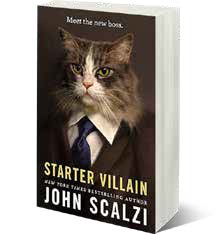Sometimes, the best books can be difficult to read. After all, the raw truth about mankind’s ability to be the cruelest species on earth is never easy to bear. But Ishmael Beah, author of “A Long Way Gone, Memoirs of a Boy Soldier,” needed to tell his story, and we need to read it to understand that humanity has not evolved past our animalistic instinct to exploit those weaker than us. His saga is a detailed blueprint of how normal children can be trained to become homicidal monsters.Beah was only 12 years old in 1993, playing soccer and listening to American hip-hop music, when the first refugees of the civil war enveloping Sierra Leone entered his village. He writes, “Apart from their fatigue and malnourishment, it was evident they had seen something that plagued their minds, something that we would refuse to accept if they told us at all.”Unfortunately, Beah would quickly understand the horrors behind those blank stares. Within a few days, rebel troops reached his village while Beah and his brother, Junior, were visiting a town 16 miles away. In an effort to reunite with their parents, the boys set out on a seemingly endless trail of misery, punctuated by a few small acts of kindness.The two join a group of four other boys who roam the countryside seeking enough food to sustain life. They avoid well-worn paths connecting villages, hiding in the grass to escape the rebels. Villagers, some of whom they knew before the war, are suspicious of the small band, so they skirt towns, gathering sour wild oranges or killing small game for food. “People were terrified of boys our age. Some had heard rumors about young boys being forced by rebels to kill their families and burn their villages. These children now patrolled in special units, killing and maiming civilians,” Beah said.After convincing the residents of Kamator that they are only looking for food and shelter, the boys are allowed to settle in the village and help with the harvest, but the town is overrun by rebel forces a month later. During the raid Beah escapes and hides in the forest. In the aftermath, he searches for his brother and friends, but never sees them again.Beah hides close to the village for a few days, hoping some of the villagers will return. Then, he sets out again, walking through burnt villages “where dead bodies of men, women and children of all ages were scattered like leaves on the ground after a storm,” he writes.Do not begin this book expecting to read a heroic tale. Beah is anything but a hero, he was a mere child who learned to kill in order to survive.Wandering aimlessly for weeks, Beah encounters Sierra Leone troops who escort him back to their camp. Joining 30 other boys between the ages of 7and 16, he begins his military training. A tent in the camp is used to show violent movies; the boy soldiers’ favorite is “Rambo.” Besides marijuana, there is cocaine and “little white pills” the boys ingest before a battle. In a matter of weeks, children are turned into killing machines.The saddest part of the book is when Beah wins a contest for killing a rebel fighter faster than the other boys. He slices the throat of his enemy, without remorse, in one quick, cruel, calculated movement. He would go on killing for the next three years. Beah had now become the monster he once feared.Beah’s memoirs are an undiluted account of war. His salvation appears to be at hand when a UNICEF truck appears in camp one day, and Beah is told to turn over his weapon. The United Nations pressured both forces to give up a small percentage of boy soldiers who were then taken to rehabilitation centers in Freetown.But Beah’s epic story is far from over. The war reaches Freetown and he must flee the country or face joining the army once more. Beah’s journey ended in the United States, where he was able to complete high school and graduate from college. Today, he is a member of the Human Rights Watch Children’s Rights Division Advisory Committee for the United Nations and continues to write and speak about the plight of boy soldiers throughout the world.How Beah summoned the courage necessary to write this story is inconceivable. Leave your comfort zone long enough to read this incredible book. It’s not a truth we want to hear, but it’s one we need to know, because the horrendous practice of using children to fight wars is far from over.Note: Next month, I’ll review “The Burnt House,” by Faye Kellerman. Read the book, then read my review. Send your comments to KathyH@newfalconherald.com.






